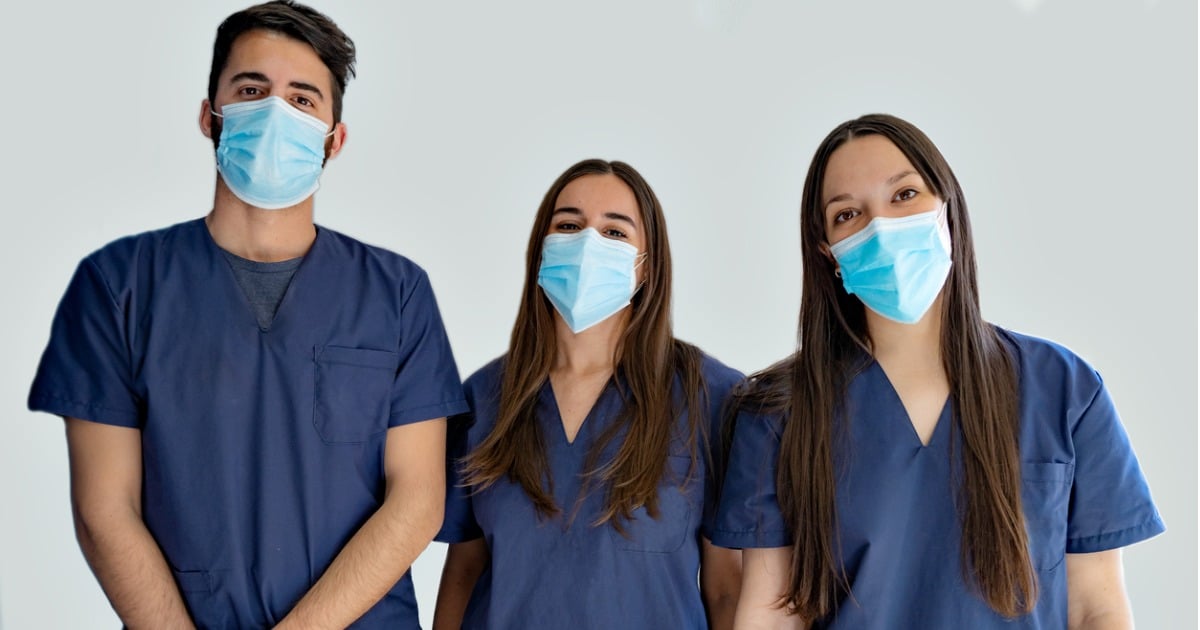July 1 update: Governor signs budget
The California 2022-23 state budget signed June 30 by Gov. Gavin Newsom includes all of CDA’s priority asks, making significant gains for dentistry and oral health with major investments in health care workforce development; $50 million to build and expand facilities and infrastructure to provide care for dental patients with special health care needs; and $10 million for grants to develop dental student clinical rotations. Read the latest CDA article for details.
May 26: Final negotiations are underway for California’s 2022-23 state budget that includes a $97.5 billion surplus and a one-time investment of $1.7 billion for workforce training and development, including the dental workforce. CDA has advocated for targeted investments to improve dental pipeline opportunities and expand apprenticeship programs, and Gov. Gavin Newsom’s May Revision shows his continued commitment to funding initiatives that will help address the dental staffing shortage.
In other good news, the May revision includes an additional $30 million in funding for the state’s Medi-Cal Dental Transformation Initiative, which aims to increase the use of preventive dental services for children and diagnose and treat more early childhood caries. CDA specifically requested this dollar amount to cover payments to Medi-Cal dental providers who were not covered by federal funding.
Separately, CDA continues to urge the governor and Legislature to include in the final budget a one-time investment of $50 million to build and expand facilities and infrastructure to provide care for dental patients with special health care needs.
$1.7B investment supports dental and health care apprenticeships, staff recruitment and training
The $1.7 billion one-time investment would occur over three years across the Labor and Workforce Development Agency and California Health and Human Services Agency. The targeted investments include:
- $230 million for a new Apprenticeship Innovation Funding initiative to support industry-led apprenticeship programs in dental and health care and other industries that traditionally have not utilized apprenticeship models.
- $240 million for High Road Training Partnerships, a public-private partnership initiative of the California Workforce Development Board to provide training and career-ladder opportunities, including dental assisting.
- $60 million for Multilingual Health Initiatives to expand scholarships and loan repayment programs in health care and social work for multilingual applicants with the goal of increasing language and cultural competencies throughout the health care workforce.
Expansion opportunity for CDA’s dental assistant training program
Smile Crew CA, CDA’s own dental assistant training program that launched in October 2020 to help dentists fill open positions in their practice, is eligible for funding through the High Road Training Partnerships.
CDA’s pilot trainings teach participants dental terminology, HIPAA compliance, infection control protocols and other basic skills needed for a dental assisting career. Importantly, the trainings also allow participants to obtain the certifications required for dental assisting.
To date, 108 individuals have completed the training with the majority either being hired or offered a position with a hire pending.
A third training cohort is already underway in San Diego and San Francisco, and the trainings recently expanded to San Bernardino and the South Bay of Los Angeles County.
The targeted $240 million for HRTP through the state budget could bring CDA’s training programs to more regions across California – not only helping to alleviate dental staffing shortages exacerbated by the COVID-19 pandemic but to create new job opportunities for workers who were displaced by the pandemic.
Coalition says budget surplus funds could expedite care for patients with special needs
Currently, only 14 sites in California can provide dental care for patients with special needs, and most, including dental schools, are backlogged with long wait times exacerbated by the pandemic. Many patients and their families travel hours to clinics to receive routine dental care, and some wait for years to receive that care, as highlighted in a May 17 CalMatters article.
CDA, along with a coalition of special needs advocates, provider groups and dental schools continue to push for a one-time allocation through the budget surplus to address this crisis.
The one-time investment would fund grants for building a network of new specialty dental clinics or expanding settings that serve individuals with physical, developmental or cognitive disabilities. Entities could apply for up to $5 million in grant funding and would need to agree to serve the special needs population for at least 10 years upon completion of the construction.
The additional care settings would significantly expand access to dental care for individuals who are unable to undergo dental procedures in traditional dental offices either due to special health care needs or the complexity of the care needed ― sometimes requiring special accommodations for mobility issues, stabilization or deep sedation.
‘People with special health care needs must be provided timely access to dental care’
Three CDA member dentists who work in dental surgery centers and dental school clinics were interviewed for the CalMatters article and speak about the severe need for special care: the long waits, especially for the more serious procedures, the small number of dentists in private practice who can accommodate the patients and complications with Medi-Cal reimbursements.
“The state is responsible for ensuring access to dental care for patients with special health care needs,” states CDA President Ariane Terlet, DDS, in the article. “If California is serious about its commitment to health equity, people with special health care needs must be provided timely access to dental care.”
The Legislature has until June 15 to pass the final budget, and the governor’s signing deadline is June 30. Watch for updates in the newsroom, including about potential apprenticeship opportunities through AIF and new ways to recruit and retain qualified dental staff.

